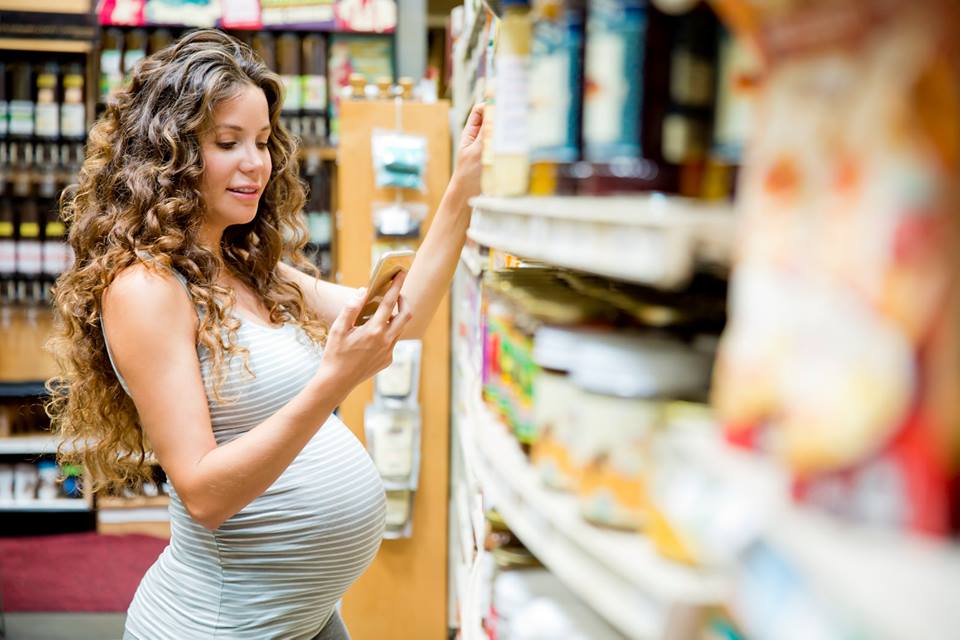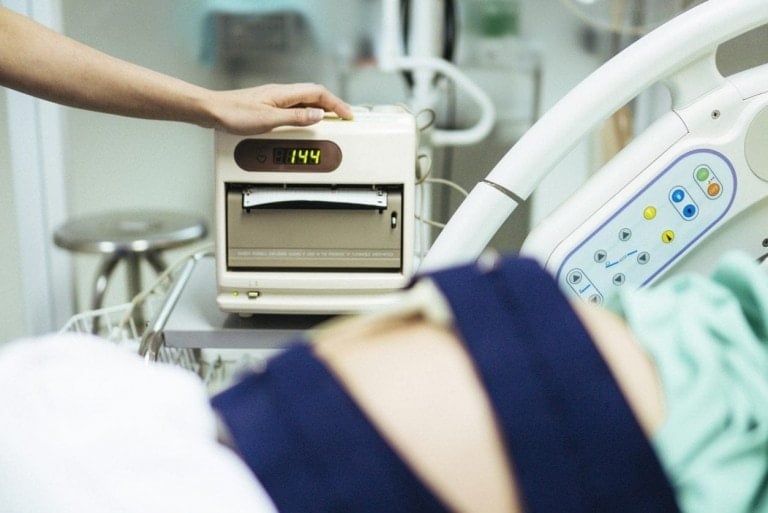Vitamins and minerals are essential nutrients you need throughout pregnancy to support a baby’s optimal growth and development and the mom’s changing body. While your prenatal vitamin may provide you with some additional vitamins and minerals needed during pregnancy, we consider them a safety net or insurance policy and recommend obtaining these nutrients from foods first.
Here, we’ll dive into the nine vitamins and minerals your body (and baby) need during pregnancy, how much you might need, and where to find them in foods. Eating healthy whole foods throughout pregnancy allows you to obtain these essential nutrients. Each woman’s needs may vary based on any underlying deficiencies and baseline dietary intake, so before adding a new supplement to your routine, consult your OB-GYN or midwife.
5 Essential Vitamins Needed During Pregnancy
There are several vitamins you need for a healthy pregnancy:
1. Vitamin A
Vitamin A is a vital nutrient throughout pregnancy. However, excessive intake of Vitamin A (>10,000 IU, or international units, in the form of retinol) can increase the risk of congenital disorders, so it should not be consumed in large quantities.1 Avoiding retinol-containing facial products during pregnancy to limit exposure to higher doses is recommended.2 Pregnant women require 750 mcg RAE (retinol activity equivalents) of Vitamin A daily.3
- Mom’s benefits: essential for genetic transcription, an immune system boost, and protection of vision1
- Baby’s benefits: promotes cell, bone, and tooth formation, as well as vision and healthy skin1
- Food sources: beef liver, sweet potatoes, spinach, carrots, cantaloupe, mangos, eggs, apricots, broccoli, and pasteurized cheeses4
2. B Vitamins
A variety of B Vitamins play an essential role throughout pregnancy. In particular, Vitamins B6 (Pyridoxine), B9 (folate, or folic acid), and B12 (cobalamin) work together to build a healthy nervous system and minimize the risk of neural tube defects.5,6
Vitamin B6 (Pyridoxine)
This works with Vitamin B12 for healthy red blood cell formation and metabolism. The American College of Obstetricians and Gynecologists (ACOG) also recommends Vitamin B6 as a safe and effective over-the-counter treatment for nausea and vomiting during pregnancy (also known as morning sickness).7,8
- Recommended intake during pregnancy: 1.9 mg7
- Food sources: poultry, fish, liver and other organ meats, vegetables, dairy products, nuts, bananas, beans, brown rice, and oats7
Vitamin B9 (Folate, or Folic Acid)
Folate, or folic acid, plays an essential role in cell division and is necessary to make DNA and RNA. Increased amounts of folic acid help prevent neural tube defects such as spina bifida and oral and facial congenital disabilities, including cleft palate.9
- Recommended intake during pregnancy: 600 mcg9
- Food sources: beef liver, brussels sprouts, dark leafy greens, oranges, avocados, nuts, and nut butter9
Vitamin B12 (Cobalamin)
This is essential for DNA synthesis, red blood cell formation, and a healthy nervous system for the baby. A Vitamin B12 deficiency during pregnancy may increase the risk of neural tube defects, developmental delays, failure to thrive, and anemia in the baby.10,11
- Recommended intake during pregnancy: 2.6 mg10
- Food sources: fish, meat, poultry, eggs, dairy products, and fortified cereals10
3. Vitamin C
Vitamin C is essential in iron absorption, collagen synthesis, wound healing, healthy teeth and gums, and immune function. It needs to increase to 85 mg during pregnancy.12
- Mom’s benefits: enhances iron absorption, improves skin elasticity, and supports a healthy immune function12
- Baby’s benefits: supports a healthy immune system and collagen formation12
- Food sources: citrus fruits, guava, bell peppers, broccoli, tomatoes, and strawberries13
4. Vitamin D
Vitamin D is a fat-soluble vitamin that is predominantly produced by exposure to the sun and plays a vital role during pregnancy.14 Although current recommendations do not suggest increased needs during pregnancy (600 IU of Vitamin D), many pregnant women are at an increased risk of Vitamin D deficiency, and most experts agree that increased supplementation may be necessary.15,16 A recent study suggests up to 4,000 IU of Vitamin D during pregnancy is safe and may be optimal to sustain sufficient levels.17 It should be noted, however, that high doses of Vitamin D can lead to toxicity.18 Discuss with your healthcare provider whether an additional Vitamin D supplement is necessary before adding a supplement to your routine.
- Mom’s benefits: works with calcium and phosphorus to promote healthy bone development14
- Baby’s benefits: promotes the healthy development of bones and decreases the risk of rickets, plus the optimal intake of Vitamin D during pregnancy may decrease the risk of immune system disorders in offspring14,19,20
- Food sources: fish (salmon, mackerel, cod, halibut, sardines), mushrooms, milk, and eggs21
5. Vitamin E
Vitamin E needs do not increase during pregnancy (15 mg/day), but it continues to be an important nutrient to obtain during pregnancy. This essential nutrient is a potent antioxidant that protects cells from damage, boosts immune function, and can assist with DNA repair.22
- Mom’s benefits: helps your body form and utilizes red blood cells, also strengthening the muscular system and the tissue of the internal organs22
- Baby’s benefits: boosts immune function, assists with DNA repair, and ensures protection from free radicals22
- Food sources: sunflower seeds, almonds, hazelnuts, peanut butter, spinach, broccoli, and kiwi23
4 Minerals and Other Essential Nutrients Needed During Pregnancy
In addition to the vitamins above, you need plenty of minerals and other substances to ensure your and your baby’s health throughout pregnancy.
6. Calcium
Along with Vitamin D, calcium is an essential mineral for bone and teeth development for both mom and baby, with over 99% of your calcium stores in your bones.24 Calcium needs (1,000 mg/day) do not increase during pregnancy; however, it is essential to obtain this nutrient to maintain adequate levels to support proper heartbeats, muscle contractions, and nerve transmissions during pregnancy and labor.25 To assist with calcium absorption, it is recommended to combine calcium with Vitamin D.26 Additionally, calcium supplements should be taken separately from your prenatal vitamin and/or iron supplements to prevent interference with iron absorption.27
- Mom’s benefits: protects bone density, strengthens muscle and nervous system function, and may prevent preeclampsia during pregnancy25
- Baby’s benefits: ensures the proper development of bones and teeth25
- Food sources: yogurt, orange juice, cheese, milk, salmon, tofu, soybeans, kale, chia seeds, and almonds/almond milk28
7. Iron
Iron is most well-known for its role in the production of hemoglobin and the prevention of anemia. During pregnancy, iron needs (27 mg/day) almost double to support fetal growth, increased maternal blood volume, and the formation of the placenta. However, many pregnant women are at increased risk for iron deficiency and may need additional supplementation.29 Talk to your healthcare provider about whether you require additional iron supplementation.
- Mom’s benefits: supports hemoglobin production and prevents iron-deficiency anemia and premature delivery29
- Baby’s benefits: supports overall fetal growth (low iron in pregnancy may lead to complications such as preterm birth, low birth weight, and developmental delay in the baby)30,31,32
- Food sources: beef, beef liver, spinach, seaweed, spirulina, soybeans, sesame seeds, fortified cereals, poultry (chicken/turkey), lentils, and dairy products33
8. Choline
Choline is not considered a vitamin or a mineral but an essential nutrient during pregnancy that plays a crucial role in many bodily functions. These include metabolism, DNA synthesis, and a healthy nervous system. Needs for choline during pregnancy increase to 450 mg/day. However, many prenatal vitamins lack this essential nutrient, with more than 90% of expecting moms not getting enough through diet alone.34,35
- Mom’s benefits: assists with nutrient transport across the placenta34,36
- Baby’s benefits: enhances brain development and prevents neural tube defects34,37
- Food sources: egg yolks, milk, nuts/nut butter, fish, and meat38
9. Omega-3 Fatty Acids
The benefits of Omega-3 fatty acids are tremendous for our health in the long term. And for pregnancy, Docosahexaenoic Acid (DHA) is of utmost importance, given its role in the baby’s brain, eye, and nervous system development. Recommended intakes increase to 650 mg of omega-3 fatty acids during pregnancy, with 300 mg specifically coming from DHA.39,40
- Mom’s benefits: reduces the risk of heart disease during pregnancy and later in life40
- Baby’s benefits: supports baby’s brain, eye, and nervous system development40
- Food sources: fish and seafood (mainly salmon, tuna, crab, catfish, clams, and oysters), egg yolks, fortified orange juice, pasta, milk, and oils40
Consuming various vitamins, minerals, and other nutrients from foods in your pregnancy diet is crucial. As always, check with your doctor or midwife to see if additional supplementation is necessary. Work together to ensure the healthiest pregnancy for you and your baby.































